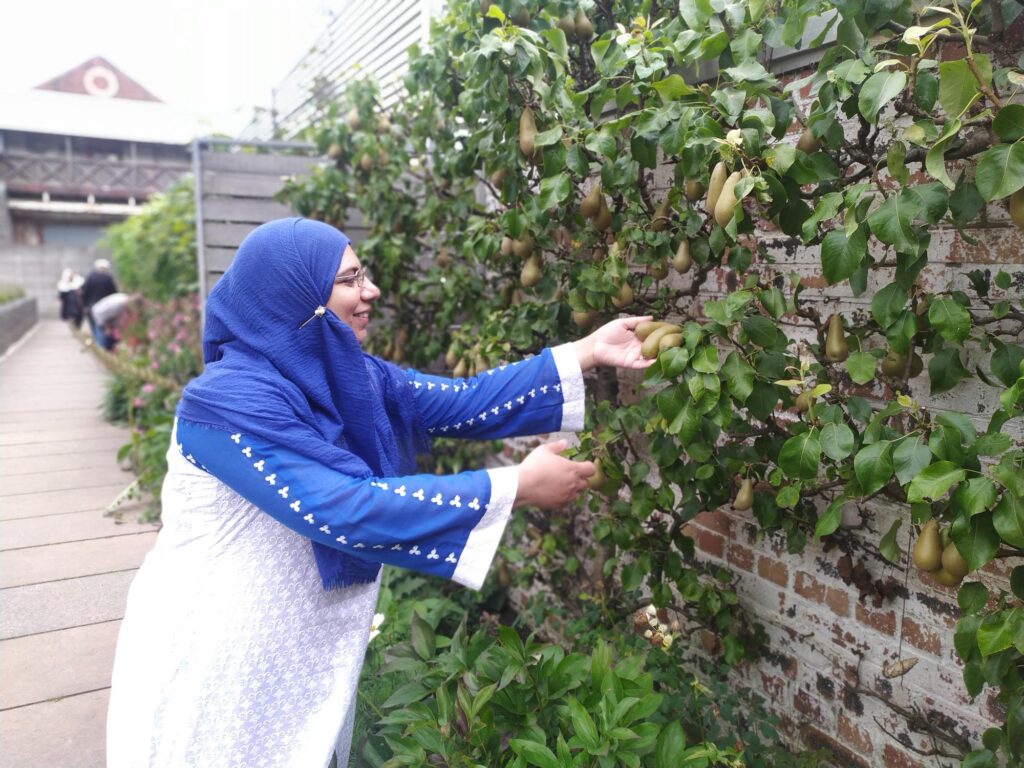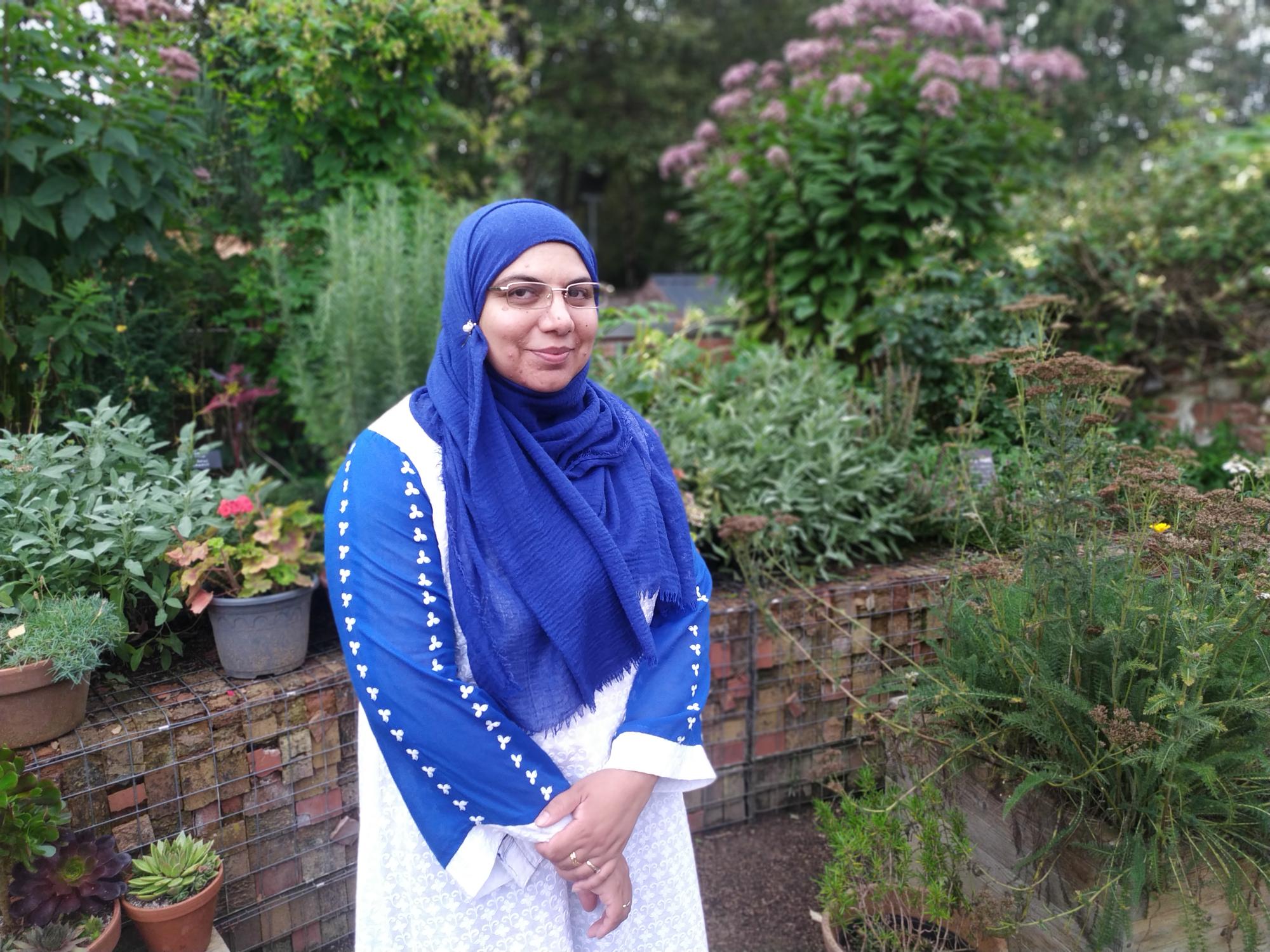Last month, Hyphen Magazine, a new online outlet focusing on issues important to Muslims across the UK and Europe, visited the Hidden Gardens and interviewed our dedicated volunteer and member of staff, Saubia, and our chief executive Amanda. You can read their full interview here.
The Hidden Gardens, also in Pollokshields, is one of Glasgow’s longest-established community spaces. Set up in 2003 and funded by a mixture of public donations and charity grants, it welcomes thousands of visitors per year. What was once the site of a tram depot is now a tranquil garden, full of flowers, trees and lawns. A newer building on the site also provides space for classes and events.
Saubia Safdar got involved with the Hidden Gardens in 2012 through community cooking classes. She brought recipes from her native Pakistan to share with 12 other women, and learned how to make an array of dishes from elsewhere in return. Now she proudly uses recipes from Spain, Poland, Italy and Bangladesh at home.
Safdar also works for the project, two days a week, as a cleaner, regularly attends classes and visits the garden on her days off. “The Garden helps a lot of people. It changed a lot of people’s lives. It changed mine, definitely,” she said.
Safdar is full of praise for the organisation, which she credits with boosting her confidence and allowing her to make friends from around the world. “When I first arrived in Glasgow, I had kids and didn’t really do anything. I was a mum, at home. Then, when my kids were in primary school, I thought, I need to do something, they’re growing up now.’ I started volunteering at different places and didn’t find one that was nice and friendly. When I came here, it was different,” she said.
“Most people, when they come to the UK, stay within their community. They are afraid to meet other people. One of the main problems is language. Places like here encourage people to integrate, especially the classes, the gardening group, the cookery. The environment is so good and friendly. Within a few days you are like, ‘OK, it’s fine, they are like us.’ Nobody laughs at you, nobody makes fun of you, people don’t make you feel you are less than them. They give you respect. That’s all you need.”

Amanda Patterson, chief executive of the Hidden Gardens, explained that a special effort was made to engage with locals from the outset. Over a period of 18 months, the charity spent time talking with and listening to the community about what they wanted from the space and what was missing in Pollokshields.
“What was overwhelmingly coming back from the community was that green spaces didn’t feel safe, particularly for Muslim women,” she said.
Concerns about racism when out in public, the need for women-only spaces and a lack of diverse voices in decision-making about public spaces were common. At design stage, it was decided that a fence would be placed around the Hidden Gardens and a decision was made to ensure that the space would be staffed at all times. Alcohol, smoking and pets are not allowed on the premises.
“It makes sure that it’s a clean space and that it’s neutral for anyone to use,” Patterson said.
The approach has worked. In addition to visitors, around 30 people volunteer on a regular basis to maintain the garden. Many are people seeking asylum in the UK and a significant number come to practise their English. Around 100 more locals help out as and when needed.

